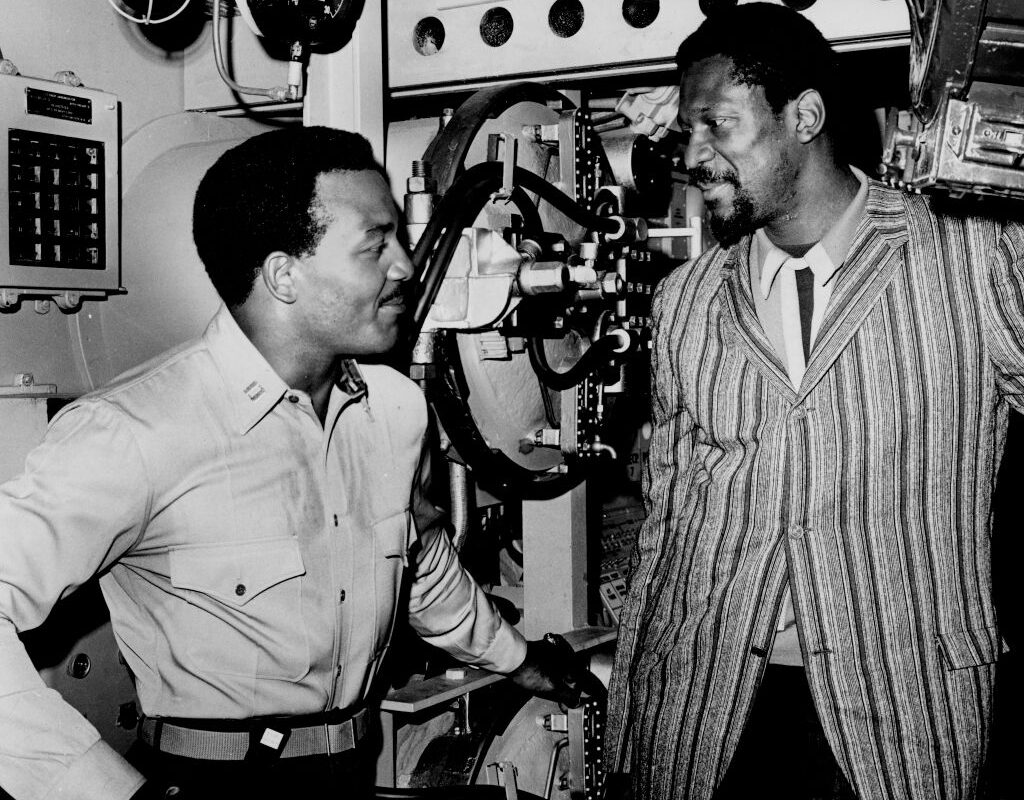Even Though The End Was Weird, Jim Brown’s Legacy Deserves Our Celebration
Source: Boston Globe / Getty
The passing of football legend Jim Brown brought with it mixed emotions for many Black Americans. Jim Brown wasn’t just a football hero, he was also a Black American icon who fought for the poor and worked to combat gang violence. But the end of Brown’s journey was filled with Donald Trump plugs and Uncle Tom accusations that are hard to shake from the lexicon. Regardless, Jim Brown still deserves our flowers, our compassion and our celebration.
As a football player, he was one of the best to ever do it. In 2002, Brown was named the greatest football player ever by Sporting News and for good reason. Selected by the Cleveland Browns in 1957, Brown, who played running back, led the league in rushing eight out of the nine years he was in the league. He was also named a Pro Bowler every year he played, leading the Browns to three league championship appearances and one title in 1964. Jim Brown would walk away from the game of football after nine seasons when many believed he was still in his prime. At the age of 30, Brown began his second career as a Hollywood actor, appearing in more than 30 films.
The former NFL star’s first movie role was in the 1964 western Rio Conchos. Brown would then go on to star in the blockbuster action film The Dirty Dozen in 1967. Brown also starred in big movies like Spike Lee’s He Got Game and the hit football movie Any Given Sunday, where he acted alongside Al Pacino and Jamie Foxx. Brown was one of the most successful athletes turned actors to ever grace Hollywood.
As an actor, he was an inspiration to many, but as an activist, Jim Brown helped change lives. Brown was a true believer in empowering the Black community. He made it his mission to advocate for civil rights and to encourage Black athletes to get more involved in their communities.
Source: Bettmann / Getty
In the summer of 1967, Brown organized a meeting of America’s top Black athletes to support boxer Muhammad Ali’s fight against serving in the Vietnam War. Brown was joined by Bill Russell, Kareem Abdul-Jabbar, and Ali, all of whom were at the top of their respective sports.
In 1988, Brown founded Amer-I-Can, a program for inner-city youth and ex-convicts that teaches life skills dedicated to helping individuals to meet their academic potential, conform their behavior to acceptable societal standards and improve their overall quality of life. The program still exists today.
But Brown’s relationship with the Black community isn’t Black and white and rather complicated. When most Black Americans had Colin Kaepernick’s back, Brown focused on the flag and the national anthem.
“I’m going to give you the real deal: I’m an American,” Brown said in an interview with The Post Game. “I don’t desecrate my flag and my national anthem. I’m not gonna do anything against the flag and national anthem.”
When Donald Trump was running for president, Jim Brown was publicly endorsing him, ignoring his racist and bigoted red flags and posing for every photo-op possible. One of the saddest moments in my memories of Jim Brown was watching him in the Oval Office with Trump and Kanye. It seemed like Jim Brown had forgotten everything he fought for. As hard as that moment has been to shake, I think it’s time to shake it. Brown’s legacy shouldn’t be completely smeared because things got weird toward the end.
Source: Consolidated News Pictures / Getty
When we talk about Jim Brown, let’s tell the whole story, which is filled with inspiration, heroism and an activist spirit. Yes, there are moments we may not like, or disagree with, but that doesn’t lessen his impact on Black America one bit.
SEE ALSO:

